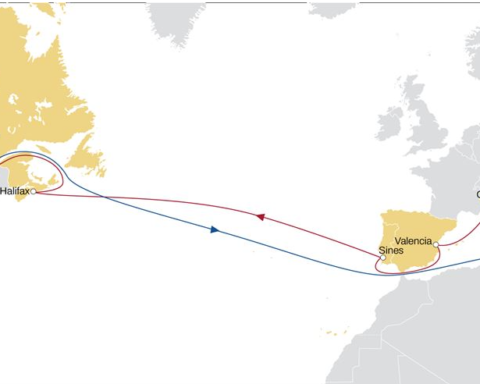Spiraling inflation, which has mainly affected food and energy costs over the last few weeks, is having a significant impact on the operational capacity of many ports, where labour disputes over pay-rise proposals considered too low compared to the current cost of living are on the rise.
Strikes at major German (Hamburg) and British (Felixstowe and Liverpool) ports have in fact led to severe disruptions to supply chains, with negative effects on port performance.
In its Ports and Terminals Insight, Drewry points out that the waiting times for ships before berthing have increased considerably in the ports affected by the disputes. In Hamburg, for example, larger ships had to wait an average of four days between July and August.
Momentary logistics crises have forced carriers to divert goods to alternative ports, but these are now at risk of being literally flooded with goods.
According to the report, despite an agreement with the trade unions being reached in Germany, labour availability, particularly at weekends, remains problematic, Yard occupancy remains high and this has an impact on productivity, resulting in calls lasting longer.

Likewise, in the UK, cargo handling operations in Felixstowe remain problematic due to the backlog of work that has arisen as a result of the eight-day strikes called by unions in both late August and late September/early October. Drewry points out that the strike action in Liverpool creates further problems for shippers, forecasting further disruptions to the supply chain and delays in the delivery of goods throughout the fourth quarter of 2022.

According to Drewry, rising inflation will also increase the likelihood of strikes in other markets as workers demand higher wages to meet the rising cost of living.
Dramatic problems in supply chains threaten to become an economic drag even for the world’s largest economy, the United States of America.
Drewry cites as an example the escalation of social unrest in the West Coast ports of the United States due to the non-renewal of a contract that expired in 2019 and has so far been postponed three times.
The positions between the International Longshore and Warehouse Union (ILWU), representing 15,000 dock workers, and the employer, the Pacific Maritime Association (PMA), remain distant. The feeling is that negotiations will continue for much longer, at least until late 2022, early 2023, creating new uncertainties and disruptions to the supply chain.
“Whether terminal operators will be able to pass on the higher wage costs to customers at the end of the year remains to be seen,” Drewry concludes.
Translation by Giles Foster




